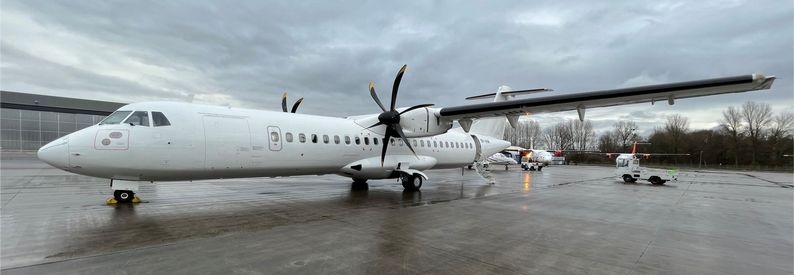Lithuania’s Jump Air bags OL, begins commercial ops

Jump Air (JUP, Vilnius) has received its Type A Operating Licence (OL) from Lithuania’s civil aviation regulator (Transporto Kompetencijų Agentūra – TKA), officially allowing it to start commercial operations, the ACMI/charter specialist announced in a statement on January 24.
The Lithuanian start-up had already secured its Air Operator’s Certificate on December 31, with the OL the final permit needed to begin commercial operations. Jump Air was incorporated in January 2020 with the aim of targeting the ACMI niche using a fleet of Avions de Transport Régional turboprops.
It is “now fully staffed, crewed, and licenced for commercial air operations,” the statement said. Its current fleet so far consists of a single ATR72-500 which, the ch-aviation fleets history module shows, is LY-JUP (msn 747), aged 14.79 years, and currently stored at Karlsruhe/Baden-Baden. AirNav RadarBox ADS-B data shows it has been at this location since flying there from Mönchengladbach on January 17.
Jump Air, whose shareholders are Italian, said it would be parked at Milan Bergamo in Italy and that the carrier plans to increase its fleet by a further two to three more ATR72s by the end of 2022, including, as previously reported, an ATR72-500(F).
It is eyeing Europe, the Middle East, Africa, Asia, and the Asia-Pacific as potential markets for charter and long-term wet-lease operations and is now accepting inquiries both short-term and long term.
Ten days earlier, Lithuania’s Ministry of Transport and Communications released its own statement that “a new air carrier registered in the country, Jump Air, plans to start operating in the near future” and added the Caribbean to the list of clients’ potential regions.
“New airlines mean new jobs and new spaces for business, travel agencies and new opportunities for travellers,” said deputy minister Julius Skačkauskas, adding that the Italian shareholders “own and operate aircraft maintenance and other aviation companies” including a company “recognised by the Italian supervisory authorities as suitable for airworthiness management tasks.”
